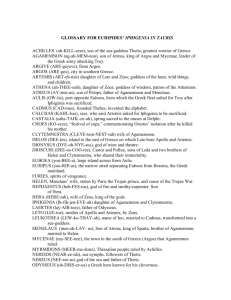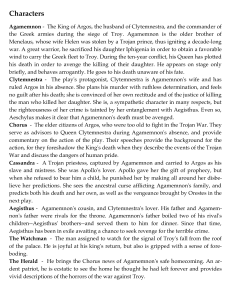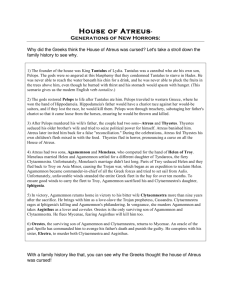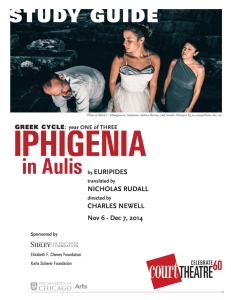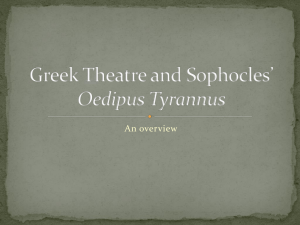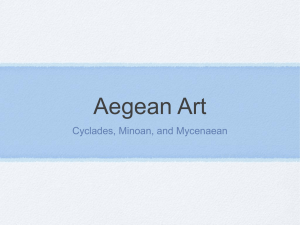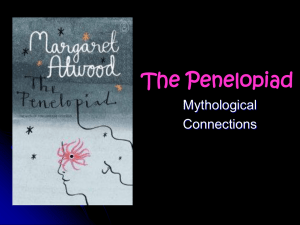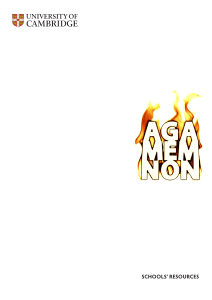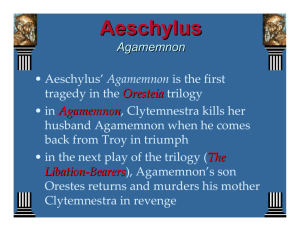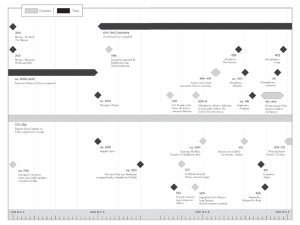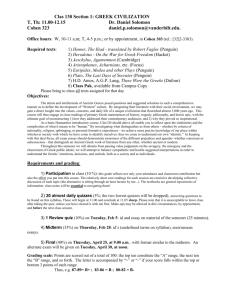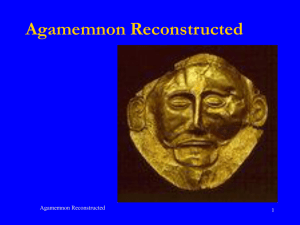Student Stanley Student Phillips IB English III 21 February 2012 Two
advertisement
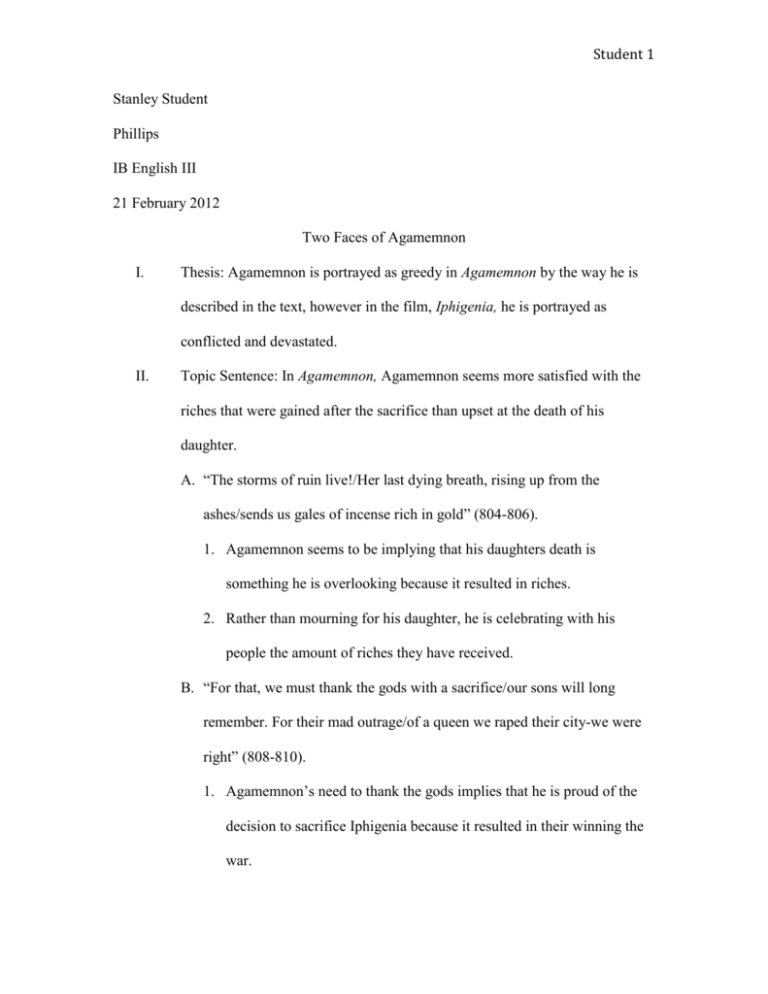
Student 1 Stanley Student Phillips IB English III 21 February 2012 Two Faces of Agamemnon I. Thesis: Agamemnon is portrayed as greedy in Agamemnon by the way he is described in the text, however in the film, Iphigenia, he is portrayed as conflicted and devastated. II. Topic Sentence: In Agamemnon, Agamemnon seems more satisfied with the riches that were gained after the sacrifice than upset at the death of his daughter. A. “The storms of ruin live!/Her last dying breath, rising up from the ashes/sends us gales of incense rich in gold” (804-806). 1. Agamemnon seems to be implying that his daughters death is something he is overlooking because it resulted in riches. 2. Rather than mourning for his daughter, he is celebrating with his people the amount of riches they have received. B. “For that, we must thank the gods with a sacrifice/our sons will long remember. For their mad outrage/of a queen we raped their city-we were right” (808-810). 1. Agamemnon’s need to thank the gods implies that he is proud of the decision to sacrifice Iphigenia because it resulted in their winning the war. Student 2 2. The congratulatory statement of “we were right” sets up the idea that Agamemnon would do whatever was right to win the war, and not second-guess what is morally right. III. Topic Sentence: In the film, Iphigenia, Agamemnon is heartbroken and feels guilty at the thought of sacrificing his daughter. A. “How can I face my wife…how can I keep my heart from breaking?” (Iphigenia). 1. Agamemnon’s plea to keep his heart from breaking allows the audience to be introduced to the idea that he is devastated by the decision to sacrifice Iphigenia. 2. Agamemnon’s fear of facing his wife emphasizes the emotion of guilt he is feeling over his daughter’s sacrifice. B. “I know better than anyone else how much love there is in a fathers heart..and how much pain” (Iphigenia). 1. Agamemnon’s explaining this in order to defend his sadness to his people. Rather than acting like a king is supposed to and not show his sadness, he is defending his sadness. 2. Agamemnon is also defending his love towards his daughter, and not letting that go unnoticed by his choices. IV. Topic Sentence: In the text, Agamemnon, he claims to understand his society and that he is proud of his choices, whereas in the film, Iphigenia, he claims his decision was one he is not proud of. Student 3 A. “Well I know, I understand society,/the flattering mirror of the proud” (823-824). 1. Agamemnon’s claim of being the proud, and understanding them greatly influences the idea that he is not at unrest for sacrificing his daughter. 2. Agamemnon is showing no remorse for his daughter, and from this statement, seems to be more bragging about his ability to understand society’s needs. B. “Even my own decisions have been a disgrace” (Iphigenia). 1. Agamemnon’s admitting that he made the wrong decision implies that he regrets the choice to give up Iphigenia. 2. Claiming the decision was a disgrace is Agamemnon’s way of letting the surrounding people know that he understands the pain he is feeling is because of his actions. V. Conclusion: Agamemnon is portrayed in two different ways depending on the version of him in text, and the version of him in film.
